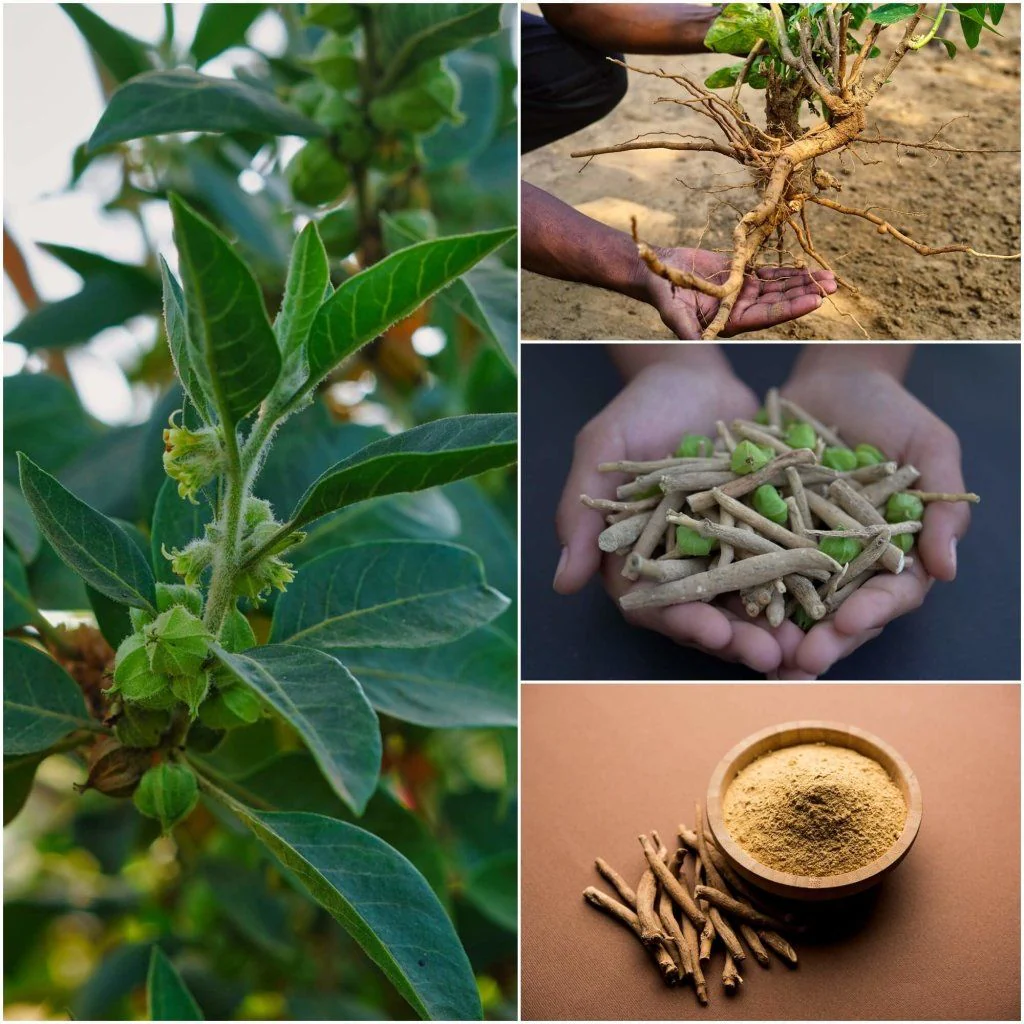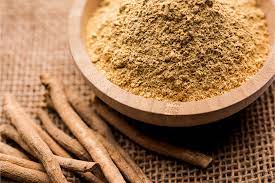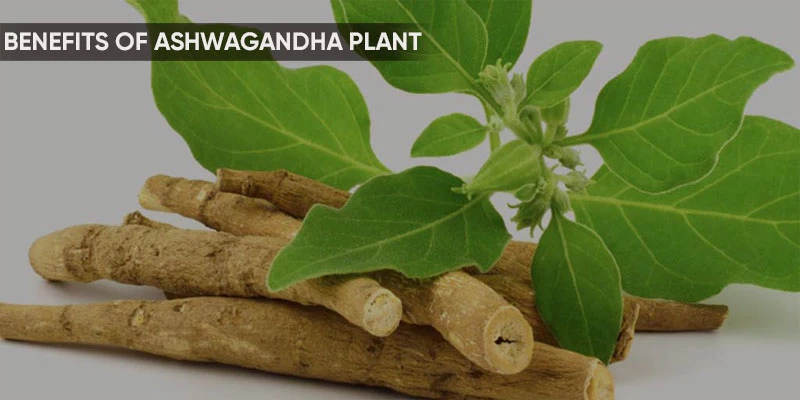Are you familiar with Ashwagandha? If not, you might want to learn about it – especially if you or someone in your family is having challenges with maintaining a positive mental outlook. In this article we’ll explore the basics about Ashwagandha and learn about its mental health benefits – including a story from my family about how it helped our teenage son. Links to learn more are provided. I’ll also give you a list of some of the specific Ashwagandha supplements we’ve been using in our family if you want to check the out for yourself.
What is Ashwagandha?
Ashwagandha is a revered herb in traditional Indian medicine and has been used for centuries to promote overall health and longevity. Also known as Withania somnifera or Indian ginseng, Ashwagandha is a cornerstone of Ayurveda, the ancient system of medicine from India. In recent years, it has garnered significant attention in the scientific community, particularly for its potential benefits in combating depression and enhancing mental health. This article delves into the properties of Ashwagandha, its historical use, and its modern-day applications, focusing on its role in mental health and depression management.

Historical Context and Traditional Use
Ashwagandha’s roots can be traced back over 3,000 years, where it was used to rejuvenate and enhance vitality. In Sanskrit, “Ashwagandha” means “smell of the horse,” suggesting that the herb imparts the vigor and strength of a horse. It has been traditionally used to treat a myriad of conditions, from physical fatigue and weakness to psychological disorders such as anxiety and insomnia.
The herb is classified as an adaptogen, a natural substance that helps the body adapt to stress.
Adaptogens are known to stabilize physiological processes and promote homeostasis, making them effective in managing stress-related conditions.
Ashwagandha’s adaptogenic properties have made it a popular remedy in modern herbal medicine, particularly for its purported benefits on mental health.
Chemical Composition and Mechanisms of Action
Ashwagandha contains several bioactive compounds, including withanolides, alkaloids, choline, fatty acids, amino acids, and a variety of sugars. The withanolides, particularly withaferin A and withanolide D, are considered the primary active compounds responsible for its medicinal properties. These compounds exhibit a range of pharmacological activities, including anti-inflammatory, anti-tumor, anti-stress, antioxidant, immunomodulatory, and neuroprotective effects.
The herb’s impact on mental health is thought to stem from its ability to modulate the hypothalamic-pituitary-adrenal (HPA) axis and balance cortisol levels, which play a crucial role in the body’s response to stress. By regulating the HPA axis, Ashwagandha helps reduce the levels of cortisol, the primary stress hormone, thereby mitigating stress and its associated symptoms.
Ashwagandha and Depression
Depression is a complex mental health disorder characterized by persistent sadness, loss of interest in activities, and a range of emotional and physical problems. It can result from various factors, including genetic predisposition, biochemical imbalances, and environmental influences. Traditional treatments for depression often include psychotherapy and pharmacotherapy, but these are not always effective for all patients and can come with significant side effects.
Ashwagandha offers a promising complementary approach to traditional treatments. Several studies have explored its antidepressant effects, with findings suggesting that it can effectively alleviate symptoms of depression.
Scientific Evidence
- Reduction of Cortisol Levels: Chronic stress and elevated cortisol levels are strongly linked to depression. A study published in the “Journal of Clinical Psychiatry” found that Ashwagandha supplementation significantly reduced cortisol levels in chronically stressed adults. This reduction in cortisol was associated with a significant decrease in symptoms of depression and anxiety.
- Neurotransmitter Modulation: Ashwagandha has been shown to influence the levels of neurotransmitters in the brain, including serotonin and gamma-aminobutyric acid (GABA). Serotonin is often referred to as the “feel-good” neurotransmitter, and its imbalance is a well-known contributor to depression. GABA, on the other hand, has a calming effect on the nervous system. By modulating these neurotransmitters, Ashwagandha can help improve mood and reduce anxiety.
- Neuroprotective Effects: Oxidative stress and inflammation are known to play a role in the pathophysiology of depression. Ashwagandha’s antioxidant properties help protect the brain from oxidative damage, while its anti-inflammatory effects further contribute to its antidepressant benefits. A study in the “Journal of Ethnopharmacology” demonstrated that Ashwagandha reduced oxidative stress markers and inflammation in animal models, leading to improved mood and cognitive function.
- Enhancing Sleep Quality: Poor sleep quality is both a symptom and a contributing factor to depression. Ashwagandha has been traditionally used to promote restful sleep. Clinical trials have shown that it can improve sleep quality and reduce insomnia, which can have a significant positive impact on mood and overall mental health.
Ashwagandha and Anxiety
Anxiety often coexists with depression, and managing it is crucial for overall mental health. Ashwagandha’s anxiolytic (anxiety-reducing) properties further enhance its potential as a holistic treatment for mental health issues.
Scientific Evidence
- Stress and Anxiety Reduction: A double-blind, placebo-controlled study published in the “Indian Journal of Psychological Medicine” evaluated the effects of Ashwagandha on stress and anxiety. The study involved 64 subjects with a history of chronic stress. The group that received Ashwagandha reported a significant reduction in stress and anxiety levels compared to the placebo group. The reduction in stress was also associated with improved overall well-being and quality of life.
- Comparative Studies with Conventional Anxiolytics: Another study compared the efficacy of Ashwagandha with that of a common anxiolytic drug, lorazepam. The findings indicated that Ashwagandha was equally effective in reducing anxiety, with the added benefit of fewer side effects. This suggests that Ashwagandha could be a viable alternative for those who experience adverse effects from conventional medications.
- Adaptogenic Benefits: By acting as an adaptogen, Ashwagandha enhances the body’s resilience to stress, which is a significant factor in the development of anxiety. Regular use of Ashwagandha has been shown to improve the body’s stress response, thereby reducing the likelihood of anxiety disorders developing in response to chronic stress.
Ashwagandha Supplementation
Dosage and Side Effects
The therapeutic dosage of Ashwagandha can vary depending on the form of the supplement and the specific health condition being targeted.
It’s important to include a discussion with your medical provider BEFORE taking any supplements like this.
Common dosages range from 300 to 600 mg of standardized Ashwagandha extract taken once or twice daily seem to be the norm. It is essential to choose high-quality supplements from reputable manufacturers to ensure safety and efficacy.
Ashwagandha is generally considered safe for most people when taken in recommended doses. However, some individuals may experience mild side effects such as gastrointestinal upset, headaches, or drowsiness. You really need to consult a healthcare provider before starting any new supplement, especially for pregnant or breastfeeding women, individuals with autoimmune diseases, or those taking other medications.
Integrating Ashwagandha into Mental Health Regimens
Given its multifaceted benefits, Ashwagandha can be considered for integration into a broader mental health regimen to support emotional well-being and combat depression. Here are some strategies for incorporating Ashwagandha into daily life:
- Supplementation: Taking Ashwagandha supplements in the form of capsules, tablets, or tinctures is a convenient way to ensure consistent intake. It is important to follow the dosage recommendations provided by the manufacturer or healthcare provider.
- Herbal Teas: Ashwagandha root powder can be used to make herbal teas. Combining it with other calming herbs such as chamomile or lavender can enhance its relaxing effects and promote better sleep.
- Functional Foods: Adding Ashwagandha powder to smoothies, soups, or other foods is an easy way to incorporate it into the diet. This approach can be particularly beneficial for those who prefer not to take capsules or tablets.
- Ayurvedic Practices: Integrating Ashwagandha with other Ayurvedic practices such as yoga, meditation, and a balanced diet can amplify its benefits. Ayurveda emphasizes a holistic approach to health, and combining these practices can support overall mental and physical well-being.
How Ashwagandha Helped My Family
Our teenage son was always a happy kid growing up with lots of friends and never any behavioral problems. Unfortunately middle school was particularly challenging for him – and it didn’t help matters that middle school for him was impacted by Covid (and the associated lockdowns and facemask craziness), nor that he changed schools mid-year in 7th grade (to escape said facemask insanity). He battled depression and anxiety during his middle school years. We worked with various mental health professionals to try to help him.
We were lucky enough to have him complete a comprehensive neuropsychological and educational evaluation. As a result of those tests we learned a few things – first it was discovered that he has ‘superior intelligence’ (1 point shy of ‘genius’). We also gained a better understanding of his psychological profile and learned numerous strategies to help him better understand himself and his individual mental health triggers.
Knowing the terrible side effects and questionable efficacy of pharmaceutical medicines for depression and anxiety, we were averse to getting our son dependent on long-term drug therapy. Thankfully we had mental health professionals who were able to suggest alternative therapies to help him – including counseling, cbt therapy, physical exercise, and various herbal supplements – including ashwagandha.
Over time lots of things helped our son – including the counseling and cbt therapy, but among everything the two most ‘efficacious’ over the long run have been physical exercise and ashwagandha.
The good news is that our son is now in high school and doing fantastic in school, friendships, and life. We’re grateful for all those who helped him and we’re also grateful that we worked with mental health providers who didn’t push pharmaceuticals as the ‘only way’ and instead suggested ashwagandha. I realize our story is only a sample size of ‘1’ but if you do a bit of research you’ll see our success story is only one among MANY. I hope that by sharing, this info may help you too.
As a side note, I tried ashwagandha myself – both for its mental health and physical fitness benefits. And guess what? It helped me too! When i take ashwagandha I noticed a slight increase in positive mood/demeanor and a bit of energy boost for my workouts. I like using ashwagandha powder in my shakes and smoothies or mixing it with my pre-workout drink. It’s good stuff!
Links to learn more:
Here are five scholarly articles that support the benefits of Ashwagandha, particularly in relation to mental health and combating depression:
- “Ashwagandha (Withania somnifera)—Current Research on the Health-Promoting Activities: A Narrative Review” – MDPI
- “Ashwagandha in brain disorders: A review of recent developments” – ScienceDirect
- “Efficacy and Safety of Ashwagandha Root Extract on Cognitive Functions in Healthy, Stressed Adults: A Randomized, Double-Blind, Placebo-Controlled Study” – Hindawi
- “Benefits of Ashwagandha for Mental Health” – Holland & Barrett
- “Proven Health Benefits of Ashwagandha” – Healthline
Is Ashwagandha Right for You?
Ashwagandha’s potential in supporting mental health and combating depression is supported by both traditional use and modern scientific research. Its ability to reduce cortisol levels, modulate neurotransmitters, protect against oxidative stress, and improve sleep quality makes it a valuable ally in the fight against depression and anxiety. It may be something to consider if you or someone in your family is battling mental health challenges.
While Ashwagandha should not be seen as a standalone treatment for severe mental health disorders, it can be a powerful complementary therapy. Integrating Ashwagandha into a comprehensive mental health strategy that includes conventional treatments, lifestyle modifications, and other holistic practices can provide a balanced approach to managing depression and enhancing overall well-being.
As research continues to uncover the full extent of Ashwagandha’s benefits, this ancient herb remains a promising natural remedy for modern mental health challenges. With its rich history and growing body of scientific support, Ashwagandha stands out as a beacon of hope for those seeking natural ways to improve their mental health and quality of life.
Ashawganda supplements to consider:

Consult your healthcare professional before adding any of these to your regimen. If you have done that and you feel ashwaganda supplements are right for you, check out these products…
- FGO Organics Ashwagandha Powder – Feel Good Organics is one of my favorite brands for high quality herbal powders.
- Himalaya Organic Ashwagandha Caplets – this is the one my son uses. He takes 1 caplet a day before school days and it’s really helped. I really like the SMALL tablets this brand offers.
- Organic India Ashwagandha Powder – I put this in my shakes and smoothies
- Garden of Life Organics Ashwagandha – this is another good one for tablets that our son has used.
- Spice Train Ashwagandha Root Powder – here’s another one I find to be good. It mixes easily in my pre-workout shakes.

